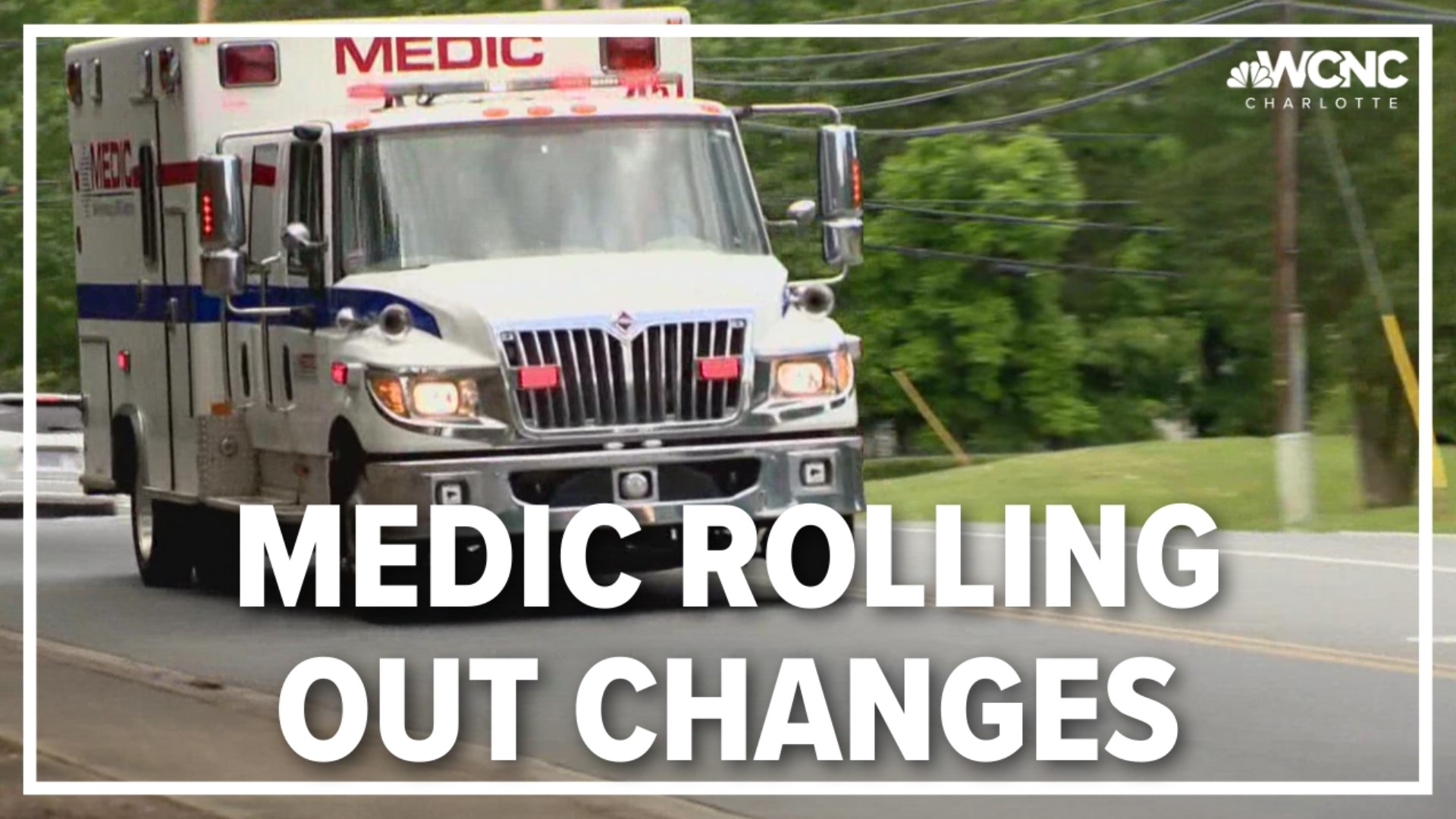MECKLENBURG COUNTY, N.C. — Mecklenburg EMS Agency (Medic) is making changes to how they respond to emergency calls. The hope is they can prioritize high-risk calls but also make the roadways safer.
Medic officials, along with first responders and hospital representatives, presented their changes to Mecklenburg County Commissioners Tuesday and why they are needed.
“I want to make a mention that this is not about staffing but about responses and how we respond as first responders within Mecklenburg County,” John Peterson, executive director for Medic, said.
Now when you call 911, it goes to CMPD’s call center and the call taker asks if you need fire, police or Medic.
All Medic calls are transferred to Medic telecommunicators.
Medic telecommunicators are certified medical emergency dispatchers recognized by the state of North Carolina as health care providers. They follow a strict protocol called medical priority dispatch.
They ask the caller to answer a series of questions so they can find out and understand the caller’s medical need and how urgent it is. At the end of that call, telecommunicators can determine the call type, if the patient needs resources quickly, or if they need medical care but they have time until medical arrives.
The process used for triaging calls in the communications call center is nationally accredited and used internationally. Officials say it is also considered the best practice for managing medical emergency calls.
The way the agency operates now, 76% of their calls are responded to as life-threatening emergencies or as potentially life-threatening calls with lights and sirens, and first responders.
The agency found that about 5% of patients who are transported were determined to be life-threatening emergencies.
“We need to have the flexibility in our EMS system and in our dispatch center to be able to ensure that we are not tying up units on calls or running emergencies when we don’t need to run emergencies and tying up on calls that could essentially prohibit us from having a unit available to run a truly life-threatening emergency,” Peterson explained.
Medic wants to make sure it is sending the right resources to the right patients in the right amount of time. As a result, it is cutting down on how often it uses lights and sirens so it can better respond to its sickest patients.
During the presentation, Medic noted there is a lot of data showing responses with lights and sirens increase risk. Their data also found that lights and sirens increase the chances of crashes by 50%. Meanwhile, it only saved a range of about 42 seconds to 3.8 minutes of time.
The proposed change is to reduce the use of lights and sirens in emergency responses from 76% to 19%. It will also increase dispatches without first responders by 10%.
Officials said rapid responses to high-priority emergencies will not change.
Calls will get a response that aligns with how severe the emergency is similar to an emergency department triage. However, some non-life-threatening emergencies may experience longer wait times.
“I’m an emergency physician just like Dr. Little and one of the things that we learned through that process is that you don’t just walk in and the first person who walks in gets treatment -- we go through a process to identify and prioritize those who need the highest level of care,” Dr. Sidney Fletcher, Emergency Medicine for Novant Health, said. “We are going to maintain that and continue to do that within this new response configuration.”
Medic officials plan to launch this next year following a public awareness campaign about the changes.
Officials say this is a long-term change to make the entire response structure better for the community and the agency.
“The most important thing this does for Medic is it helps to improve our alignment,” Peterson said. “And it helps us have better availability of resources for our sickest patients."
Contact Jesse Pierre at jpierrepet@wcnc.com or follow her on Facebook, Twitter and Instagram.

